PMs’ royal relations guided by respect
Our head of state since 1952, the Queen pays close attention to affairs of this faraway realm.
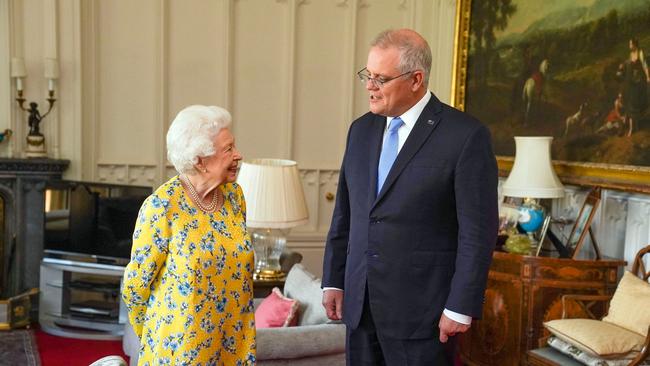
The monarch is remote from Australia yet pays close attention to the affairs of this faraway realm. Australians respect and admire the Queen but most, according to polls, do not know she is Australia’s head of state. She has reigned distantly since 1952.
The relationship between the Queen and her prime ministers is guided by convention and confidentiality. British prime ministers meet the Queen for a regular audience, Australian prime ministers far less.
Interviews with Scott Morrison and four of his predecessors help to demystify this relationship.
“The Queen’s character is the defining hallmark of her reign,” Morrison told Inquirer.
“The Queen’s life is one of dedication, duty and devotion, service over self, and steadfast and unflinching adherence to the ideals and the responsibilities of constitutional monarchy. Most Australians know no one else as our monarch. The Queen is a constant in our lives.”
When Paul Keating met the Queen at Balmoral Castle in 1993, he felt it was his duty to tell her that most Australians felt the monarchy was “an anachronism” and his government would outline a plan for Australia to become a republic. He concedes it was a difficult conversation for her.
“You know my family has always tried to do their best by Australia,” the Queen told Keating. “I will, of course, take the advice of Australian ministers and respect the wishes of the Australian people.” Keating told Inquirer the Queen emphasised Australia’s constitutional future was a matter for Australians to decide.
“There was no pushback by the Queen against the thread of my presentation,” he recalled.
Keating, the most determinedly republican of her prime ministers, personally got on well with the Queen and respected her long reign. So do his successors.
John Howard admires the Queen’s unstinting dedication to her coronation oaths. “She has been a remarkable exemplar of somebody who has done their duty and done it with great flair and great grace,” he told Inquirer. “You never get the impression that the burdens of the office are too great.”
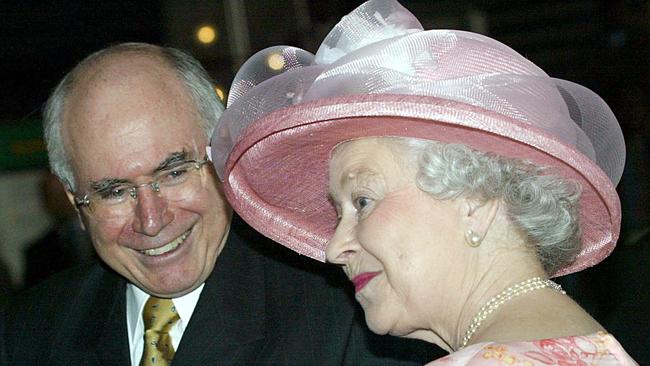
For Tony Abbott, the hallmark of the Queen’s reign has been her commitment to service, which she memorably espoused on her 21st birthday in 1947. “She has faithfully and unflinchingly discharged that duty every day of her long public life,” he told Inquirer.
Malcolm Turnbull described himself as both a republican and an Elizabethan, never imagining in his younger years that he would meet the Queen. “The Queen’s reign has been one of dedicated service and unqualified integrity,” he told Inquirer. “She is the United Kingdom’s greatest constitutional monarch.”
The Queen has toured Australia on 16 occasions. Her 1954 tour was the first for a reigning monarch. Robert Menzies hosted that tour and another in 1963. John Gorton hosted the Queen in 1970. Gough Whitlam oversaw two royal tours (1973, 1974), Malcolm Fraser four (1977, 1980, 1981, 1982) and Bob Hawke two (1986, 1988).
In 1992 there was uproar when Keating placed his hand gently on the Queen’s back to guide her to meet guests at a Parliament House function. But Sir Robert Fellowes, the Queen’s private secretary at the time, told me the Queen was not at all offended and was embarrassed by the British tabloids that labelled Keating “The Lizard of Oz”.
There was a long absence until the next tour, in 2000. Sir William Deane’s vice-regal letters – first revealed by The Australian last month – disclosed that the Queen was eager to avoid being seen to campaign for the monarchy in the lead-up to the 1999 republic referendum.
“I was well known as being an opponent of a republic, I still am, but I didn’t want anything that could be construed as an attempt by me to use or leverage her popularity as an argument against becoming a republic,” Howard recalls. He hosted further tours in 2002 and 2006.
Julia Gillard hosted the Queen’s last tour in 2011. Gillard agreed to two of the Queen’s requests: changing the line of succession so a firstborn daughter could become monarch and that Prince Charles succeed her as head of the Commonwealth.
Howard had many audiences with the Queen. “She understood the relationship of the monarchy to the Australian people,” he explains. “It was not something she took for granted. She understood that she was in every way a democratically accepted constitutional monarch.”
Abbott, as opposition leader, had a long meeting with the Queen in 2011. “She spoke with insight and candour on a range of issues,” he recalled. “It was wonderful to be in the presence of someone who has lived through such times and engaged with such people.”
Turnbull found the Queen to be “warm and courteous” when he met her in 2017. “She was not at all formal and made me and Lucy feel immediately at ease,” he recalled. “She was keenly interested in geopolitical affairs and very well informed. Our discussion was very substantive.”
Morrison has met the monarch several times. “The Queen is sharp, has great insight, and has followed Australia closely for most of her life,” he says. “She has wisdom and kindness – a great blend – and something she has shared with all the great figures of the past three-quarters of a century.”
While the letters of the Queen’s private secretaries to governors-general show a high level of engagement – some are unwise, imprudent and share laments about changing oaths, anthems and awarding honours – there is no evidence that the Queen has meddled in our politics.
Keating blames governor-general Sir John Kerr for deceiving and ambushing Whitlam with a surprise dismissal in 1975. He rejects the claim that the Queen authorised the dismissal. The assertion that the Queen “actively conspired” with Kerr “amounts to no more than tilting at shadows”, he says.
Howard agrees. “I don’t think she has interfered in our politics,” he says. “She has gone out of her way to be separate and apart, and I had the impression that she enjoyed an amiable and open relationship with prime ministers from both sides of politics.”
Abbott also rejects the conspiracy. “It would have been entirely out of character and there is not the slightest skerrick of evidence,” he says. “As her words and all the correspondence show, she has always acted with complete propriety and detachment from party politics.”
Turnbull says the Queen’s private secretary, Sir Martin Charteris, was aware of Kerr’s thinking during the crisis but he does not implicate the Queen.
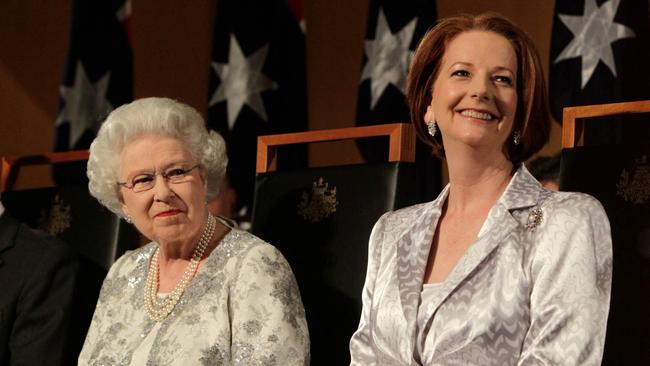
“How much of that was relayed to the Queen, we simply don’t know,” he says. “Kerr was clearly far too discursive in his correspondence and Charteris would have been well advised to be more circumspect in his in reply.”
Morrison agrees that the Queen has always been above politics. “The Queen has served Australia well, incredibly well,” he says. “The stark reality is you can’t be a respected leader, seen as above politics and seen as a unifier, if you interfere in politics. It’s impossible.”
The monarchy will enter uncharted waters when Charles succeeds to the throne. The Queen will never abdicate but age may force her to reduce her workload. The palace has long had plans for Charles to be appointed regent should circumstances require it.
There has been a steady decolonisation during the Queen’s reign, with 17 countries uncoupling from the monarchy. While the republic question is perennial, it remains a distant prospect for Australia. Republicans are divided over a model and there is no bipartisan support.
Keating is the last prime minister to advocate strongly for a republic. He sees the failure to advance the republican cause as a lack of leadership, courage and conviction. He insists that the Queen does not wish to be “indentured” to Australia as monarch.
He recalls her response to their Balmoral conversation: “(There was no) allusion by the Queen as to her possessing some divine right of governance or carrying some theological primacy. Her emphasis was on her family, and only her family, and the willingness of each of them to serve.”
Howard says no persuasive case has been made for change. “She sits at the apex of a system of government that remains most effective and the inability of those who want to make a change to agree on the form that should take is evident of how effective the current system is,” he argues.
Abbott agrees. “There is nothing wrong with our country that becoming a republic would improve,” he says. “There is much strength in our system that could be weakened by change. In the end it’s the monarchy rather than the monarch that I support. That said, the Queen has been outstanding on every level.”
Turnbull suggests there will be “enthusiasm for a change” when the Queen’s reign inevitably ends. He favours an advisory plebiscite to settle the mode of appointment of head of state – direct election or parliamentary appointment – followed by a referendum.
In this platinum jubilee year, the Queen has been recognised for her dignity and dedication. She has weathered family scandals, political and economic upheavals, vast technological change, wars and pandemics.
Morrison says the second Elizabethan age has been marked by a “gentle maturity” in the relationship between Australia and Britain, reflecting our independent identity, and a greater appreciation of the “constitutional inheritance” and “deep affection” for the Queen. The republic, he says, is for Australians to decide.
“The need and desire for an office above politics has never been greater, that is not part of the culture wars,” Morrison says. “Her majesty has demonstrated through this pandemic and the many other trials our world has faced during her reign just why our constitutional monarchy is so important. And I believe there is a renewed appreciation of that. The Crown is a unifying figure of our national life, expressed not only in the monarch herself but also through the various governors and the governor-general who every day do good works, supporting and encouraging Australians.”




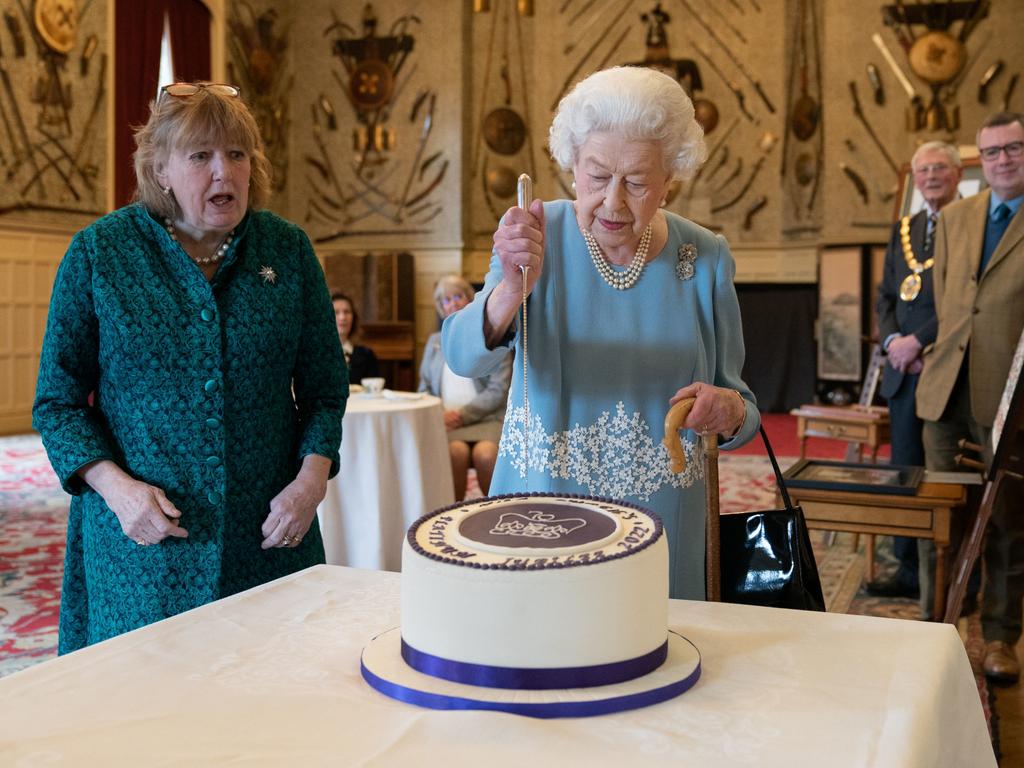
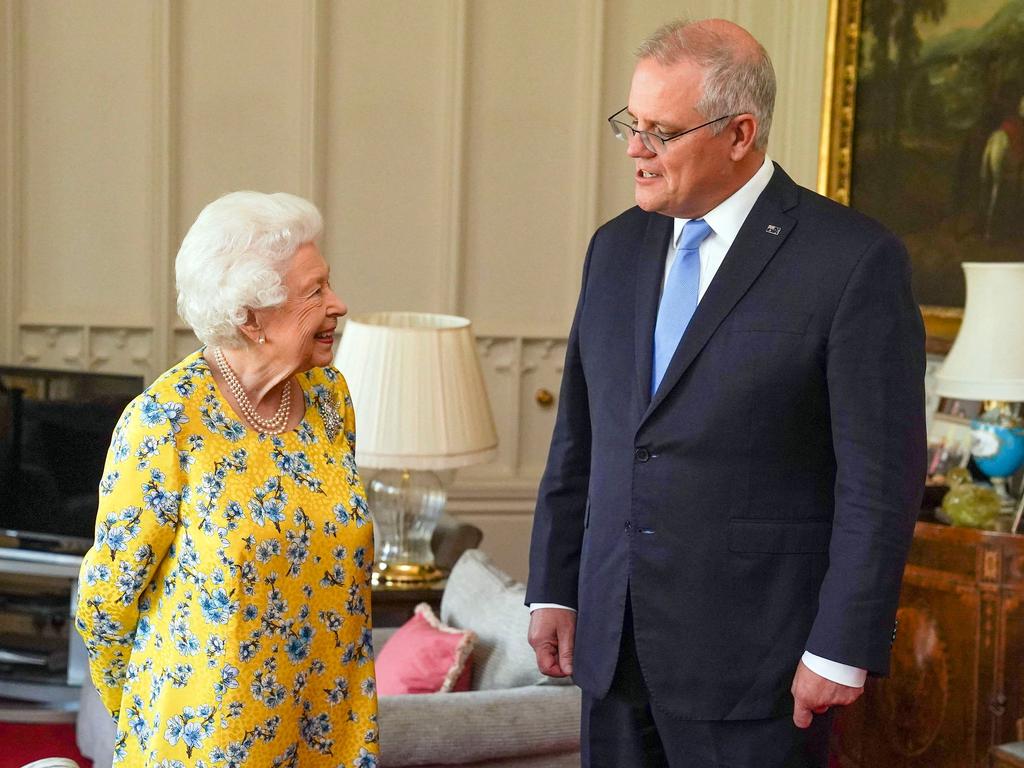


Queen Elizabeth II has reigned during the terms of 15 Australian prime ministers across 70 years. Her power, as head of state, is exercised in her name to assent to bills, dissolve parliaments and make appointments. But this constitutional power is nationalised, vested in the governor-general, and used on the advice of her prime minister.